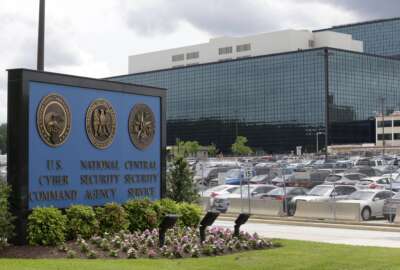Intelligence agencies are working on multiple initiatives and strategies to address artificial intelligence and other emerging technologies, but Congress is pressing the intelligence community to do more to adopt new capabilities.
The fiscal 2024 national defense authorization act, passed by both chambers of Congress and expected to be signed by President Joe Biden, includes a provision directing the director of national intelligence to set up an “Intelligence Community Innovation Unit,” within the Office of the Director of National Intelligence.
Similar to the Pentagon’s Defense Innovation Unit, the national IC organization would be tasked with “identifying commercial emerging technologies and associated capabilities to address critical mission needs of elements of the intelligence community,” the bill states.
The unit would provide intelligence agencies with technology expertise, while also working to transition promising prototype technologies into production. And lawmakers envision the unit as serving as a liaison between the intelligence community and the private sector, in particular small- and medium-sized businesses.
The unit should be staffed by up to 50 full-time people, according to the legislation, including experts in using other transaction authority and other rapid acquisition pathways.
The DNI’s plan for setting up the Intelligence Community Innovation Unit would be due to Congress within 180 days of the NDAA being signed into law. And then the DNI would have a further 180 days to establish the new organization.
Lawmakers have been pressing the intelligence community in recent years to improve its adoption of emerging technologies, and in particular, transition promising prototypes from research and development into operations.
The Defense Department established DIU in 2015 to speed up the adoption of emerging commercial technologies, in tacit recognition that DoD’s established bureaucracy and processes had become a roadblock.
The 2024 NDAA would also establish an Intelligence Innovation Board — again, similar to the Defense Innovation Board — to provide the DNI and the leaders of the intelligence agencies with “advice and recommendations on changes to the culture, organizational structures, processes, and functions of the intelligence community necessary to address the adoption of emerging technologies by the intelligence community and to accelerate such adoption.”
And the bill would further direct the heads of the biggest intelligence agencies, including the Central Intelligence Agency, the Defense Intelligence Agency and the National Security Agency, to each establish a chief technology officer position.
Lawmakers are also concerned with the intelligence community’s adoption of artificial intelligence. The NDAA would direct the DNI to establish new policies “for the acquisition, adoption, development, use, coordination, and maintenance of artificial intelligence capabilities,” including minimum guidelines for the performance of AI models used by spy agencies.
Copyright
© 2024 Federal News Network. All rights reserved. This website is not intended for users located within the European Economic Area.





